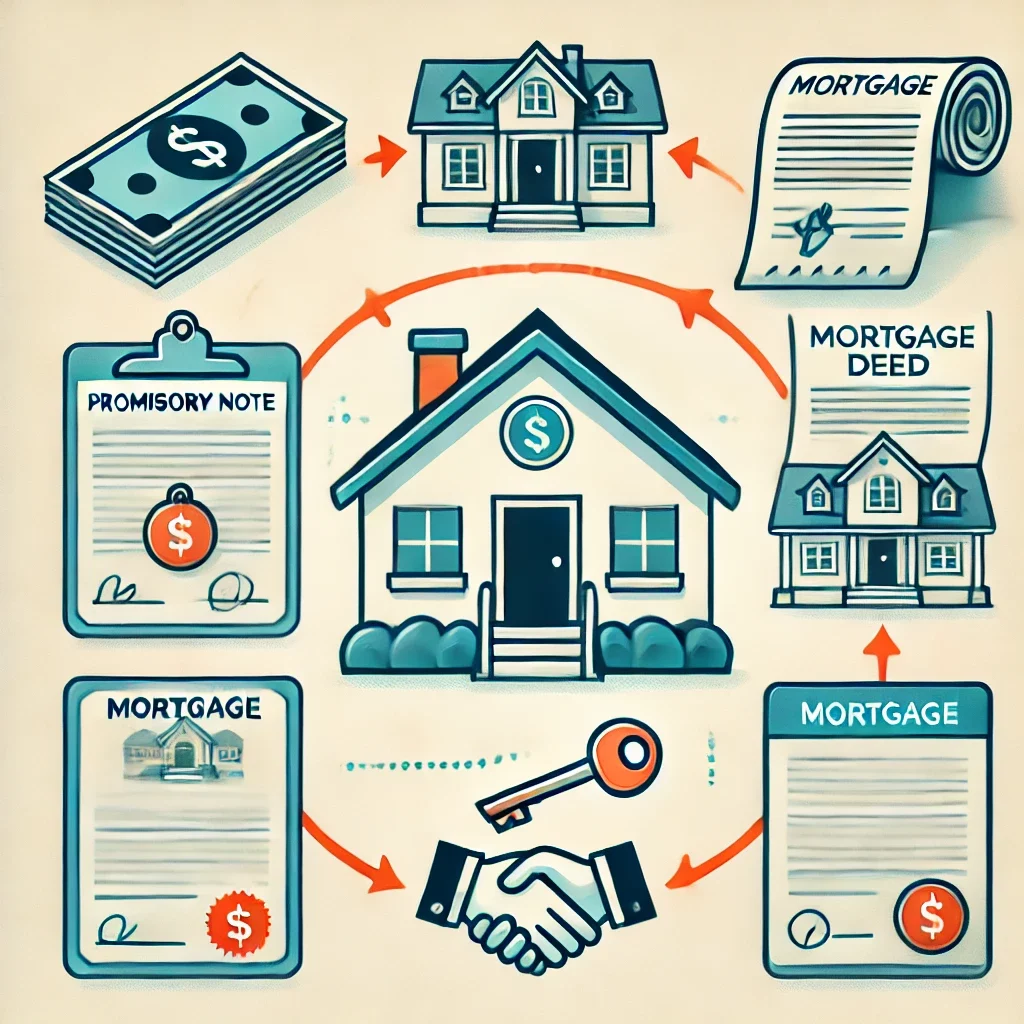Here is your Beginner’s Guide to Buying Mortgage Notes — Safely and Successfully. Can I invest in Mortgage Notes?

Looking for a smarter, more passive way to grow your wealth? Mortgage note investing might just be the powerful (and often overlooked) opportunity you’ve been searching for.
With over 30 years in the business and thousands of notes bought and sold, I’ve guided everyone from first-time investors to seasoned pros through the ins and outs of note investing. This guide will walk you through the what, why, and how — so you can confidently invest in mortgage notes, even if you’re just getting started.
What Is a Mortgage Note — And Why Should You Care?
A mortgage note (also called a real estate note or promissory note) is the legal IOU a borrower signs when financing a property. It outlines the repayment terms — and that stream of payments can be sold to investors like you.
Did you know? The U.S. residential mortgage debt market is valued at over $12 trillion — and a growing segment of that is being traded between investors. That’s a lot of opportunity.
When you buy a mortgage note, you become the lender. The borrower sends their monthly payments to you — and you get all the benefits of real estate-backed cash flow without owning the property.
How to Buy Mortgage Notes Safely (Even as a Total Beginner)

- Here’s a simple, proven formula to get started with confidence:
- ✅ Start with performing notes
- These are loans where the borrower is making regular payments. They offer reliable income and are perfect for beginners.
- ✅ Work with reputable brokers
- Avoid sketchy, undocumented deals. Use trusted platforms (like BuyMortgage.com) or experienced brokers with a long track record.
- ✅ Do full due diligence
- Review the borrower’s credit, payment history, property value, and loan terms. You’re not just buying paper — you’re investing in people and property.
- ✅ Use a real estate attorney
- They’ll help you stay compliant with state and federal laws, ensure clean title transfers, and protect your rights.
- ✅ Start small and learn
- Consider brokering deals or partnering with experienced note buyers to understand the process before going big.
🎯 Performing vs. Non-Performing Mortgage Notes
Performing Notes
- Borrowers pay on time
- Generates predictable cash flow
- Less risk, great for passive income seekers
Non-Performing Notes
Potential for higher returns — but requires experience and clear exit strategies (like foreclosure or modification)
Borrowers have defaulted
Deep discounts available
The Complete Process of Buying Mortgage Notes

- Find a note – Via brokers, marketplaces, or direct sellers.
- Conduct due diligence – Analyze property, borrower, and payment history.
- Negotiate the purchase – Based on risk, yield, and asset quality.
- Draft a purchase agreement – Always use a legal professional.
- Close the transaction – Use escrow or a closing attorney.
- Transfer servicing – Notify the borrower and update servicer records.
- Begin collecting payments – Or restructure if non-performing.
How to Value a Mortgage Note Before You Buy
Note valuation isn’t just about the unpaid balance. The following criteria must be considered.
- Interest rate and monthly payments
- Loan-to-value (LTV) ratio
- Borrower credit and payment history
- Remaining loan term
- Collateral value (property condition and location)
- Borrowers’ equity position
- Your desired yield (internal rate of return)
🧠 Pro Tip: Use a note calculator like an HP10b to compare expected cash flow to your investment amount. And always ask: “Would I be okay owning this property at this price?”
Risks and Rewards of Buying Mortgage Notes

Rewards:
- Consistent monthly income
- Higher ROI compared to traditional investments
- Real estate-backed security
- Less competition than rental properties
Risks:
- Borrower default
- Legal or title issues
- Foreclosure costs and delays
- Market volatility
With proper due diligence, most risks can be mitigated or even turned into opportunities.
Where to Find Real Estate Notes for Sale
You can find notes through several channels:
- BuyMortgage.com (my curated note marketplace)
- Note brokers and networks
- Banks and credit unions
- Online platforms like Paperstac
- Private sellers and investors
Always demand documentation and verify chain of title before buying.
The Legal Aspects of Buying Mortgage Notes
Mortgage note investing has legal complexities. Be sure to:
- Verify note ownership and assignment
- Check for any legal encumbrances on the property
- Use licensed professionals for servicing and escrow
- Comply with federal and state lending laws
- Document every step for transparency and protection
Legal oversight can make or break your investment. Never skip this step.
Final Thoughts
Mortgage note investing isn’t just a niche—it’s a proven wealth-building tool. I’ve spent over 30 years in this business and continue to find new opportunities every day. If you want expert guidance or are ready to start investing in notes, visit BuyMortgage.com or reach out directly, call us at 772-232-2383. Contact us and put our experience to work for you.
Have a mortgage note for sale? Fill out this form to get started:
![] mortgage note buyers](https://image-cdn.carrot.com/uploads/sites/79478/2024/09/suburban-street.jpg)
See how we can help you!
American Funding Group, is a premier note investor, buying notes in all states. We specialize in residential and commercial performing real estate notes in the US. We love helping note holders who are in tough situations. We will work with you to find a win-win solution so you get the most from selling your real estate note.
